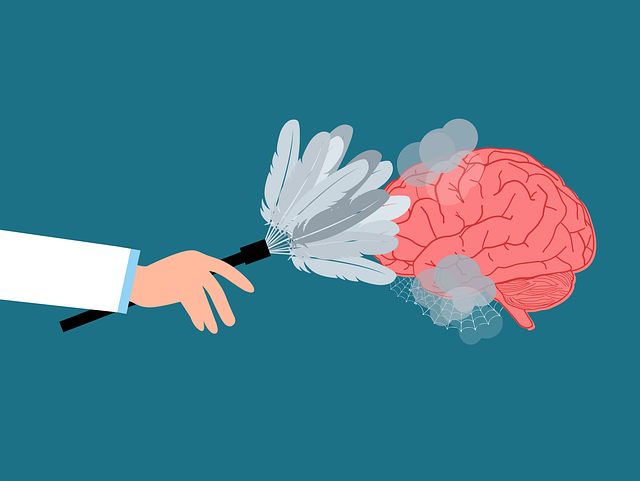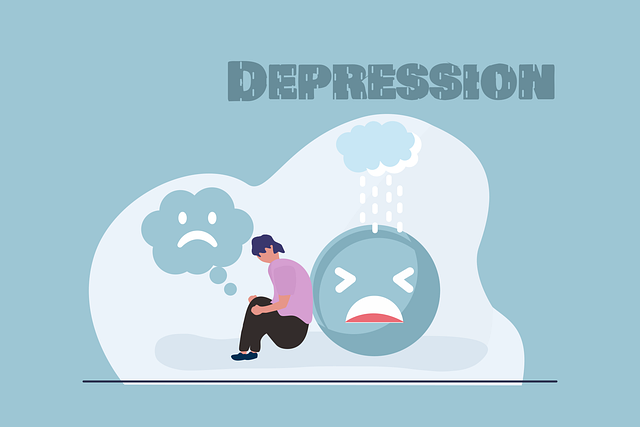Burnout plagues healthcare professionals at alarming rates, manifesting through emotional exhaustion, detachment, and decreased patient care quality. Cultivating mental wellness through strategies like mindfulness, cognitive behavioral therapy, cultural sensitivity, stress reduction techniques, and organizational support is key to preventing burnout. Arvada Divorce Therapy highlights the importance of these practices not only for individual well-being but also for enhancing patient care and fostering more fulfilling careers in healthcare. By addressing mental health proactively, healthcare providers can build resilience, adapt to challenges, and maintain long-term emotional regulation.
Healthcare provider burnout is a growing concern, impacting both practitioners’ well-being and patient care. This article explores comprehensive strategies to prevent and mitigate burnout, focusing on recognizing early signs, implementing long-term solutions, and cultivating resilience. We delve into the critical areas of self-care, work-life balance, and professional support systems, offering valuable insights for healthcare providers seeking a sustainable career. Discover effective techniques to enhance your well-being, just as Arvada Divorce Therapy guides individuals through personal transformations.
- Recognizing Burnout: Signs and Symptoms in Healthcare Providers
- Implementing Effective Prevention Strategies for Long-Term Well-being
- Cultivating Resiliency: Tools and Techniques for Overcoming Burnout
Recognizing Burnout: Signs and Symptoms in Healthcare Providers

Burnout is a significant issue within the healthcare industry, affecting physicians, nurses, and other medical professionals at alarming rates. Recognizing burnout early is crucial for implementing effective prevention strategies. Healthcare providers may exhibit various signs and symptoms, signaling their emotional exhaustion, depersonalization, and reduced sense of personal accomplishment. These can include feeling constantly fatigued, experiencing cynicism or detachment from work, and noticing a decline in the quality of patient care.
Some healthcare workers might withdraw socially, struggle with interpersonal relationships, and even exhibit physical symptoms like headaches or digestive issues. The pressure to balance demanding work schedules with personal life can lead to increased stress levels and a diminished sense of well-being. Therefore, it’s essential to foster an environment that promotes open communication about mental health and encourages the adoption of strategies such as Social Skills Training, Emotional Healing Processes, and even engaging in Mental Wellness Podcast Series Production to enhance resilience and overall mental wellness.
Implementing Effective Prevention Strategies for Long-Term Well-being

In the long run, preventing healthcare provider burnout isn’t just about managing acute stress; it’s about cultivating sustainable well-being. Effective prevention strategies must be comprehensive and tailored to individual needs. This can involve incorporating techniques for mood management—such as mindfulness practices or cognitive behavioral therapy—to help professionals navigate emotional challenges. Additionally, fostering cultural sensitivity in mental healthcare practice is crucial, ensuring providers are equipped to offer empathetic care that respects diverse backgrounds and experiences.
Regular engagement in stress reduction methods, like exercise, adequate sleep, and structured downtime, is essential for maintaining resilience over time. Organizations also play a significant role by promoting work-life balance, providing clear boundaries, and offering access to resources like counseling services or peer support networks. By implementing these strategies, healthcare providers can not only mitigate burnout but also enhance patient care and create more fulfilling careers within the field.
Cultivating Resiliency: Tools and Techniques for Overcoming Burnout

In the fast-paced world of healthcare, burnout is a prevalent concern among providers, impacting their well-being and patient care. Cultivating resilience is an effective strategy to combat this issue. Resilience involves the ability to adapt and bounce back from challenging situations, ensuring long-term mental wellness. For healthcare professionals, this can be achieved through various tools and techniques. One powerful method is regular mental wellness journaling, where providers can reflect on their experiences, process emotions, and identify areas for improvement. This practice fosters emotional regulation, helping them manage stress and prevent burnout.
Additionally, engaging in specific exercise guidance tailored to their needs can boost resilience. Physical activity releases endorphins, improves mood, and reduces anxiety. Incorporating even short periods of exercise into their daily routines can provide a much-needed respite from demanding work schedules. Beyond this, addressing the stigma surrounding mental illness through mental illness stigma reduction efforts is essential for creating a supportive environment. When healthcare providers feel comfortable seeking help and sharing their struggles, it encourages a culture of resilience and open communication, ultimately strengthening their ability to cope with burnout.
Burnout among healthcare providers is a pressing issue, but with the right strategies, it can be effectively mitigated. By recognizing the signs and symptoms early on, implementing preventive measures, and cultivating resiliency, healthcare professionals can achieve long-term well-being. Just as Arvada Divorce Therapy offers specialized support for personal resilience, these burnout prevention strategies can create a more sustainable work environment. Through self-care practices, meaningful connections, and a commitment to professional growth, healthcare providers can reclaim their passion for patient care.














